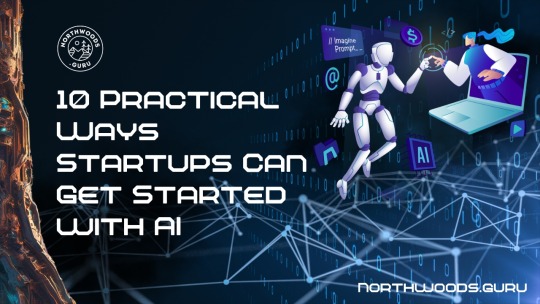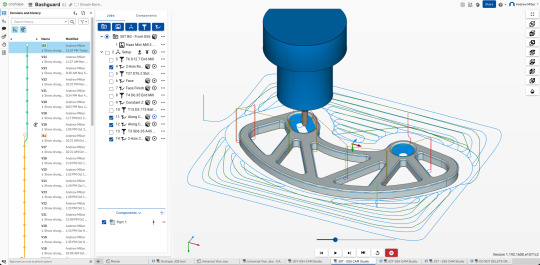#cloud developer tools
Explore tagged Tumblr posts
Photo

Unlock your design potential with Onshape: this sleek, modern bicycle model showcases the software's advanced 3D modeling capabilities and cloud-based collaboration, making it the best CAD software for innovative mechanical design.
1 note
·
View note
Text
In today’s digital-first world, businesses are under immense pressure to optimize operations, reduce costs, and improve partner communication. EDI Software Solutions have emerged as the backbone of digital transformation, enabling secure and standardized data exchange across systems and partners through electronic data interchange. From healthcare EDI to supply chain automation, the scope and relevance of EDI systems are expanding fast.However, not all EDI solutions are created equal. The right EDI tool can make a monumental difference in efficiency, compliance, and collaboration. Whether you're integrating with EMR software solutions, EHR software solutions, or simply looking to enhance B2B integration, this guide outlines the top 10 must-have features in a modern EDI software solution.
#EDI Software Solutions#EDI Integration#Electronic Data Interchange#EMR Software Solutions#EHR Software Solutions#Healthcare EDI#B2B Integration#Supply Chain Automation#EDI Features#EDI Tools#Custom Healthcare Software#HL7 Integration#X12 Standard#API Integration#Healthcare IT Solutions#Digital Transformation#Custom Software Development#Data Exchange Solutions#Cloud-Based EDI#EDI for Healthcare
0 notes
Text
Driving Innovation with AWS Cloud Development Tools
Amazon Web Services (AWS) has established itself as a leader in cloud computing, providing businesses with a comprehensive suite of services to build, deploy, and manage applications at scale. Among its most impactful offerings are AWS cloud development tools, which enable developers to optimize workflows, automate processes, and accelerate innovation. These tools are indispensable for creating scalable, secure, and reliable cloud-native applications across various industries.

The Importance of AWS Cloud Development Tools
Modern application development demands agility, automation, and seamless collaboration. AWS cloud development tools deliver the infrastructure, services, and integrations required to support the entire software development lifecycle (SDLC)—from coding and testing to deployment and monitoring. Whether catering to startups or large enterprises, these tools reduce manual effort, expedite releases, and uphold best practices in DevOps and cloud-native development.
Key AWS Development Tools
Here is an overview of some widely utilized AWS cloud development tools and their core functionalities:
1. AWS Cloud9
AWS Cloud9 is a cloud-based integrated development environment (IDE) that enables developers to write, run, and debug code directly in their browser. Pre-configured with essential tools, it supports multiple programming languages such as JavaScript, Python, and PHP. By eliminating the need for local development environments, Cloud9 facilitates real-time collaboration and streamlines workflows.
2. AWS CodeCommit
AWS CodeCommit is a fully managed source control service designed to securely host Git-based repositories. It offers features such as version control, fine-grained access management through AWS Identity and Access Management (IAM), and seamless integration with other AWS services, making it a robust option for collaborative development.
3. AWS CodeBuild
AWS CodeBuild automates key development tasks, including compiling source code, running tests, and producing deployment-ready packages. This fully managed service removes the need to maintain build servers, automatically scales resources, and integrates with CodePipeline along with other CI/CD tools, streamlining the build process.
4. AWS CodeDeploy
AWS CodeDeploy automates the deployment of code to Amazon EC2 instances, AWS Lambda, and even on-premises servers. By minimizing downtime, providing deployment tracking, and ensuring safe rollbacks in case of issues, CodeDeploy simplifies and secures the deployment process.
5. AWS CodePipeline
AWS CodePipeline is a fully managed continuous integration and continuous delivery (CI/CD) service that automates the build, test, and deployment stages of the software development lifecycle. It supports integration with third-party tools, such as GitHub and Jenkins, to provide enhanced flexibility and seamless workflows.
6. AWS CDK (Cloud Development Kit)
The AWS Cloud Development Kit allows developers to define cloud infrastructure using familiar programming languages including TypeScript, Python, Java, and C#. By simplifying Infrastructure as Code (IaC), AWS CDK makes provisioning AWS resources more intuitive and easier to maintain.
7. AWS X-Ray
AWS X-Ray assists developers in analyzing and debugging distributed applications by offering comprehensive insights into request behavior, error rates, and system performance bottlenecks. This tool is particularly valuable for applications leveraging microservices-based architectures.
Benefits of Using AWS Development Tools
Scalability: Effortlessly scale development and deployment operations to align with the growth of your applications.
Efficiency: Accelerate the software development lifecycle with automation and integrated workflows.
Security: Utilize built-in security features and IAM controls to safeguard your code and infrastructure.
Cost-Effectiveness: Optimize resources and leverage pay-as-you-go pricing to manage costs effectively.
Innovation: Focus on developing innovative features and solutions without the burden of managing infrastructure.
Conclusion
AWS development tools offer a robust, flexible, and secure foundation for building modern cloud-native applications. Covering every stage of development, from coding to deployment and monitoring, these tools empower organizations to innovate confidently, deliver software faster, and maintain a competitive edge in today’s dynamic digital environment. By leveraging this comprehensive toolset, businesses can streamline operations and enhance their ability to meet evolving challenges with agility.
0 notes
Text

Discover why POS for small businesses is essential in the UAE. Automate sales, manage inventory, and improve service for lasting success
#POS for small businesses#POS systems UAE#POS software Dubai#point of sale UAE#retail POS systems#cafe POS solutions#salon POS UAE#food truck POS#cloud POS software#inventory management UAE#billing software UAE#small business tools UAE#sales analytics POS#POS software development#restaurant POS UAE
0 notes
Text
How to Host a Scalable Website with Free Tiers
Introduction Got a killer idea for a website but worried about hosting costs? Whether you’re a startup founder, indie developer, or creative hobbyist, you can absolutely host a scalable website—for free. Yes, seriously. Thanks to some generous platforms with free hosting tiers, you can go live, grow your audience, and even scale up without touching your wallet. Let’s break down the smartest ways…
0 notes
Text
Kickstart AI in your startup! Our blog shares 10 practical tips to harness AI and transform your business from day one.

View On WordPress
#AI Deployment#AI for Startups#AI Implementation#AI Strategy#AI Tools#AI Trends#AI Use Cases#Automation#business intelligence#Cloud Computing#Data Analytics#Data Governance#Data-Driven#Emerging Tech#entrepreneurship#Future of Work#Growth Hacking#machine learning#MVP Development#productivity#Responsible AI#Scalability#Small Business#Startup Growth#Tech Innovation
0 notes
Text

BTech CSE: Your Gateway to High-Demand Tech Careers
Apply now for admission and avail the Early Bird Offer
In the digital age, a BTech in Computer Science & Engineering (CSE) is one of the most sought-after degrees, offering unmatched career opportunities across industries. From software development to artificial intelligence, the possibilities are endless for CSE graduates.
Top Job Opportunities for BTech CSE Graduates
Software Developer: Design and develop innovative applications and systems.
Data Scientist: Analyze big data to drive business decisions.
Cybersecurity Analyst: Safeguard organizations from digital threats.
AI/ML Engineer: Lead the way in artificial intelligence and machine learning.
Cloud Architect: Build and maintain cloud-based infrastructure for global organizations.
Why Choose Brainware University for BTech CSE?
Brainware University provides a cutting-edge curriculum, hands-on training, and access to industry-leading tools. Our dedicated placement cell ensures you’re job-ready, connecting you with top recruiters in tech.
👉 Early Bird Offer: Don’t wait! Enroll now and take the first step toward a high-paying, future-ready career in CSE.
Your journey to becoming a tech leader starts here!
#n the digital age#a BTech in Computer Science & Engineering (CSE) is one of the most sought-after degrees#offering unmatched career opportunities across industries. From software development to artificial intelligence#the possibilities are endless for CSE graduates.#Top Job Opportunities for BTech CSE Graduates#Software Developer: Design and develop innovative applications and systems.#Data Scientist: Analyze big data to drive business decisions.#Cybersecurity Analyst: Safeguard organizations from digital threats.#AI/ML Engineer: Lead the way in artificial intelligence and machine learning.#Cloud Architect: Build and maintain cloud-based infrastructure for global organizations.#Why Choose Brainware University for BTech CSE?#Brainware University provides a cutting-edge curriculum#hands-on training#and access to industry-leading tools. Our dedicated placement cell ensures you’re job-ready#connecting you with top recruiters in tech.#👉 Early Bird Offer: Don’t wait! Enroll now and take the first step toward a high-paying#future-ready career in CSE.#Your journey to becoming a tech leader starts here!#BTechCSE#BrainwareUniversity#TechCareers#SoftwareEngineering#AIJobs#EarlyBirdOffer#DataScience#FutureOfTech#Placements
1 note
·
View note
Photo

Unleash your design potential with Onshape: this detailed CAD model of the Bale Squeeze illustrates the software's advanced mechanical design capabilities and unparalleled cloud-based collaboration, making it the best CAD software for innovative engineering solutions.
0 notes
Text
Prompt Engine Commercial by Karthik Ramani Review
Prompt Engine Commercial by Karthik Ramani – Discover Why Prompt Engine Pro is the Ultimate Tool for Entrepreneurs and Creatives Prompt Engine Commercial by Karthik Ramani. When it comes to tools that simplify workflows, Prompt Engine Pro emerges as a top choice due to its seamless functionality and innovative features. Unlike conventional extensions or collections of prompts, this app works as…

View On WordPress
#affordable prompt engine commercial solution#AI powered prompt engine commercial services#best prompt engine commercial software#cloud based prompt engine commercial applications#custom prompt engine commercial development#enterprise level prompt engine commercial system#high quality prompt engine commercial tool#most effective prompt engine commercial platform#prompt engine commercial for specific industries#scalable prompt engine commercial infrastructure
0 notes
Text

Do you know which game avatar is this ? Checkout on https://Gamepodcasts.com and play online games
#Free online games#Best mobile games#PC gaming accessories#Upcoming video games#Gaming laptops under $1000#Top indie games#VR gaming experiences#Cloud gaming services#Esports tournaments 2025#Retro gaming consoles#Game development tutorials#Mobile game monetization#Gaming headset reviews#Speedrunning communities#Game streaming tips#Best RPG games 2025#Gaming chair ergonomics#Cross-platform multiplayer games#Game design courses#Mobile game development tools#Gaming keyboard features#Top gaming podcasts#Indie game funding sources#Game localization services#Gaming industry news#Best co-op games#Game art portfolios#Gaming mouse DPI settings#Video game music composers#Game physics engines
0 notes
Text
#ios app development company in noida#custom software development company in noida#software development company in noida#app development in noida#Cloud Consulting Services#Cloud Consulting Services in Noida#software development company in india#Mobile App Development Company#Mobile App Development Company near me#Best App Development Company Near me#App Development Company Near me#Best App Development Company in Noida#ios mobile app development company in Noida#Web Development Company in Delhi NCR#Web Development Company in Noida#Ecommerce website Development#Ecommerce Developer#Ecommerce Website Development Near me#Ecommerce website Development company noida#mobile app development tools android and ios#ios and android app development services#app development software for android and ios#android and ios app development company#mobile app development company in india#mobile app developer company#web design companies near me#custom software development services#software company in India#Software Development Company#Best software development company in india
0 notes
Text
Build AI Tools for Money: Simple Developers Guide
Learn how developers can create and sell AI tools or APIs for profit. Discover steps to identify problems, build solutions, monetize effectively, and grow your AI business.
The world of artificial intelligence (AI) is booming, and developers are uniquely positioned to take advantage of this trend. Creating and selling AI tools or APIs is one of the most lucrative ways to turn your coding skills into a business. Whether you’re solving a niche problem or building tools for broader use, there are endless opportunities in this space. Table of Contents What Are AI Tools…
#AI#Application Development#Business Growth#Cloud Computing#Cognitive Computing#Creative Tools#Data Science#Machine Learning#Software Development#Software Engineering
0 notes
Text
Google Gen AI SDK, Gemini Developer API, and Python 3.13
A Technical Overview and Compatibility Analysis 🧠 TL;DR – Google Gen AI SDK + Gemini API + Python 3.13 Integration 🚀 🔍 Overview Google’s Gen AI SDK and Gemini Developer API provide cutting-edge tools for working with generative AI across text, images, code, audio, and video. The SDK offers a unified interface to interact with Gemini models via both Developer API and Vertex AI 🌐. 🧰 SDK…
#AI development#AI SDK#AI tools#cloud AI#code generation#deep learning#function calling#Gemini API#generative AI#Google AI#Google Gen AI SDK#LLM integration#multimodal AI#Python 3.13#Vertex AI
0 notes
Text
Exploring AWS Cloud Development Tools: Empowering Innovation and Efficiency
As businesses increasingly transition to the cloud, the demand for robust and efficient development tools continues to rise. Amazon Web Services (AWS) offers a comprehensive suite of powerful tools designed to assist developers in designing, building, deploying, and managing applications in the cloud. These tools aim to enhance productivity, foster collaboration, and streamline the development process, whether the focus is on a simple website or a complex enterprise application.
In this blog post, we will delve into some of the key AWS cloud development tools, examining their functionality and the benefits they provide to developers and organizations alike.
Key AWS Cloud Development Tools
AWS offers a diverse range of development tools that span the entire software lifecycle. These tools enable developers to write code, automate deployment processes, monitor applications, and optimize performance. Below are some of the most significant AWS cloud development tools:
1. AWS Cloud9
AWS Cloud9 is a cloud-based Integrated Development Environment (IDE) that enables developers to write, run, and debug code directly from a browser. It supports a variety of programming languages, including JavaScript, Python, PHP, and more. As a cloud-based IDE, AWS Cloud9 offers the flexibility to code from any location, eliminating the need for local setup.
Key benefits of AWS Cloud9 include:
Collaboration: Developers can collaborate in real-time, sharing their environment with team members for paired programming or code reviews.
Serverless Development: Cloud9 features built-in support for AWS Lambda, facilitating the creation and management of serverless applications.
Preconfigured Environment: It removes the necessity to install and configure dependencies on a local machine, significantly reducing setup time.
2. AWS CodeCommit
AWS CodeCommit is a fully managed source control service that hosts Git repositories. Similar to GitHub or Bitbucket, CodeCommit allows teams to securely store and manage source code and other assets within private Git repositories.
Reasons to consider AWS CodeCommit:
Scalability: CodeCommit automatically scales with the size of your repository and the number of files.
Integration: It integrates seamlessly with other AWS services, such as AWS CodeBuild and CodePipeline, streamlining the development workflow.
Security: AWS CodeCommit utilizes AWS Identity and Access Management (IAM) for access control, ensuring the security of your code.
3. AWS CodeBuild
AWS CodeBuild is a fully managed build service that compiles source code, runs tests, and produces software packages ready for deployment. It eliminates the need to manage build servers, enhancing the speed and efficiency of the build process.
Key benefits of AWS CodeBuild:
Continuous Scaling: AWS CodeBuild automatically scales to handle multiple builds simultaneously, significantly reducing wait times for larger projects.
Custom Build Environments: It allows for the customization of build environments using Docker images or provides access to pre-configured environments.
Pay-as-You-Go: Users are charged only for the build time consumed, leading to potential cost savings for teams that run builds intermittently.
4. AWS CodeDeploy
AWS CodeDeploy streamlines the deployment of applications across various services, including Amazon EC2, AWS Fargate, AWS Lambda, and on-premises servers. It supports both blue/green and rolling deployments, thereby minimizing downtime and mitigating the risk of deployment errors.
Key features of AWS CodeDeploy include:
Automation: CodeDeploy automates deployment tasks, ensuring consistency across different environments and reducing the potential for human error.
Monitoring: Integration with Amazon CloudWatch and AWS X-Ray allows for effective monitoring of deployments and application performance.
Flexibility: It accommodates various deployment types, including blue/green deployments for near-zero downtime and rollback functionality in the event of a failure.
5. AWS CodePipeline
AWS CodePipeline is a continuous integration and continuous delivery (CI/CD) service that automates the steps necessary for software release. It automates the building, testing, and deployment of applications with every code change, ensuring faster and more reliable releases.
Key benefits of AWS CodePipeline:
End-to-End Automation: It automates each stage of the development lifecycle, from coding through to production deployment.
Flexibility: CodePipeline integrates seamlessly with a variety of third-party tools, including GitHub and Jenkins, allowing developers to utilize familiar tools.
Faster Releases: Automated testing and deployment pipelines enable teams to release features more rapidly, with minimal downtime or manual intervention.
6. AWS X-Ray
AWS X-Ray assists developers in analyzing and debugging distributed applications, particularly those utilizing a microservices architecture. It generates a detailed map of the components and services interacting with the application, simplifying the process of troubleshooting performance bottlenecks and errors.
Key features of AWS X-Ray:
End-to-End Tracing: AWS X-Ray traces requests across all components of the application, from the frontend to the backend, offering comprehensive visibility into the performance of each service.
Seamless Integration with AWS Services: X-Ray integrates effortlessly with AWS Lambda, Elastic Load Balancing, Amazon EC2, and a variety of other AWS services.
Root Cause Analysis: This tool assists in identifying the root causes of performance issues and errors, facilitating the optimization of the application’s architecture.
Conclusion
AWS cloud development tools empower developers to enhance efficiency, automate manual tasks, and build scalable, secure applications. Whether you are just beginning your journey in cloud development or managing extensive projects, these tools provide the flexibility and capability required to create high-quality cloud-based applications. By incorporating services such as AWS CodeCommit, CodeBuild, and CodeDeploy into your workflow, you can improve collaboration, elevate code quality, and expedite the release cycle—ultimately driving business success in a cloud-first environment.
0 notes
Photo

Unlock precision engineering with Onshape: this detailed CAD model of a bashguard highlights the software's advanced 3D modeling capabilities and seamless cloud-based collaboration, making it the best CAD software for mechanical design.
0 notes
Text
Maximizing Productivity with Microsoft 365's New Cloud Solutions
In today's fast-paced business environment, companies are always on the lookout for innovative tools that can help them scale operations, enhance collaboration, and improve overall productivity. Microsoft 365 has consistently provided cutting-edge solutions, and its latest cloud-based innovations are no exception. These new features are designed to empower businesses to streamline their workflows, improve cross-team collaboration, and leverage advanced tools for seamless deployment. One key element to ensuring this smooth integration is the Microsoft Office Deployment Tool, which plays a critical role in helping businesses deploy and manage Office apps with ease.
Scaling Operations with Cloud Efficiency
The latest innovations in Microsoft 365 have introduced a robust, cloud-first infrastructure that offers businesses unparalleled scalability. This scalability is a game-changer, particularly for organizations experiencing growth or those looking to expand their operations across different locations. By leveraging Microsoft’s cloud infrastructure, businesses can seamlessly scale their services without worrying about the complexities of traditional IT expansion.
For instance, with tools like Microsoft Teams, organizations can effortlessly add new users, set up departments, and manage permissions, all from a centralized dashboard. This flexibility allows organizations to adapt quickly to changing needs without the burden of physical hardware or complex software installations. Furthermore, with data securely stored and accessible in the cloud, businesses can ensure that their employees have real-time access to the tools and information they need, regardless of their physical location.
Enhancing Cross-Team Collaboration
Effective communication and collaboration are essential for any business to thrive, especially in a globalized workforce. Microsoft 365's cloud-based innovations are at the forefront of this transformation, helping organizations foster better cross-team collaboration.
With integrated tools like SharePoint and OneDrive for Business, teams can collaborate on documents in real-time, without the limitations of email attachments or version control issues. Whether team members are in different offices, countries, or time zones, everyone can work on the same project, knowing they have access to the most up-to-date information. Microsoft Teams further amplifies this by integrating with tools like Planner, Power Automate, and even third-party apps, allowing teams to manage projects, automate workflows, and track progress—all from one central hub.
This unified approach to communication and collaboration reduces the friction often caused by siloed information and fragmented workflows, enabling businesses to increase their productivity.
Streamlined Deployment with the Microsoft Office Deployment Tool
As businesses adopt these innovative cloud-based solutions, deployment becomes a critical factor in ensuring seamless integration and use. Enter the Microsoft Office Deployment Tool (ODT), which plays an essential role in helping businesses quickly and efficiently deploy Office apps across various devices and users.
The ODT allows IT administrators to customize and manage how Microsoft Office apps are installed on user devices. From selecting specific Office apps to install to configuring update channels and managing deployment across different networks, the ODT simplifies what would otherwise be a cumbersome process. With features like language customization, installation optimization, and real-time configuration, the Microsoft Office Deployment Tool provides businesses with the flexibility and control they need to ensure a smooth transition to the latest Office apps without interrupting workflows.
The Future of Cloud-Enabled Productivity
As businesses continue to navigate the complexities of remote work and hybrid environments, Microsoft 365’s cloud solutions offer a clear path forward. By leveraging its latest innovations, businesses can scale operations efficiently, enhance cross-team collaboration, and deploy critical tools like Office apps with ease through the Microsoft Office Deployment Tool. This combination of cloud-based scalability, collaboration, and streamlined deployment positions Microsoft 365 as an essential solution for modern businesses looking to stay competitive and maximize productivity.
In a world where productivity and adaptability are paramount, Microsoft 365 stands out as a comprehensive platform that provides businesses with the tools they need to succeed in a cloud-first world.
#odt#office deployment tool#microsoft odt#odt download#microsoft#microsoft cloud solutions#mirosoft office 365 deployment tool#office development tool
0 notes